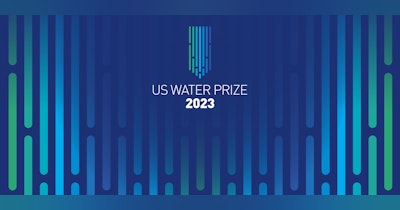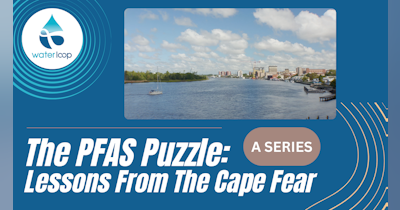These are the most downloaded episodes of the waterloop podcast in 2023!
Listen to all episodes on your favorite podcast platform
#10: Fighting For Fairness In San Joaquin Valley
There are one million people in California without safe drinking water and many of them live in the San Joaquin Valley, a region dominated by agriculture. Many residents, particularly low-income, Latino farmworkers in rural communities, face the harsh reality of dry wells or contaminated water sources due to the excessive water consumption and pollution caused by the agricultural industry.
But there are organizations fighting for fairness in water access, as discussed in this episode with Susana De Anda of Community Water Center, Linda Gutierrez of the Yettum-Seville Community Services District, and Jessi Snyder of Self-Help Enterprises.
They talk about the basic assistance of providing emergency tanks, delivering water, and drilling wells for homes. They also explain efforts to unite tiny utilities, build networks of community leaders, assist towns with operations, and raise the voice of those in need.
#9: Living With Water In New Orleans
New Orleans has a complicated relationship with water. The city draws much of its identity from the Mississippi River, the bayous and swamps of southern Louisiana, and the nearby Gulf of Mexico. But the location and topography mean New Orleans has historically faced storms and flooding, which are worsening due to climate change.
The traditional use of large, engineered infrastructure to manage water is not enough. This episode explores how New Orleans is adopting a Living With Water approach to bolster its resilience.
Rami Diaz, an architect with Waggonner & Ball, discusses lessons from the Dutch in allowing water to be part of the landscape and how spaces across the city are being transformed. Meagan Williams, Urban Water Program Manager with the City of New Orleans, explains how green infrastructure is being implemented on public property and reducing floodwaters. Angela Chalk, Executive Director of Healthy Community Services, talks about helping residents in the 7th Ward install nature based solutions at their homes and improve their neighborhood.
#8: The State Of Water Research
Science has always been foundational to water management. That tradition continues in 2023, with a staggering breadth and depth of research underway.
It’s particularly important to gain knowledge about emerging contaminants, impacts of climate change, and water reuse, as discussed in this episode with Peter Grevatt, CEO of The Water Research Foundation.
Peter explains how research can be applied to improve water management, the opportunity for regulators to use research to accelerate solutions, and the science of PFAS.
#7: The PFAS Puzzle: Lessons On Regulations
Some of the big questions about PFAS are how industrial facilities have been able to discharge the chemicals and whether regulations like the Clean Water Act are being properly utilized.
Those regulatory issues and the situation for the Cape Fear River are discussed in this episode with Elizabeth Biser, Secretary of the North Carolina Department of Environmental Quality, and Geoff Gisler, Program Director at the Southern Environmental Law Center.
They talk about the requirements for compliance with a consent order and groundbreaking permit for a facility on the Cape Fear. Geoff summarizes the variety of PFAS litigation around the country and direction of the legal fight, while Elizabeth explains the response and approach by state regulators.
#6: The PFAS Puzzle: Lessons On Health
The emergence of PFAS has epidemiologists and toxicologists working to understand the health impacts. Researchers in North Carolina are on the leading edge of the science and in this episode Dr. Jane Hoppin of North Carolina State University and Dr. Jamie DeWitt of East Carolina University discuss what is known about human health impacts.
They talk about studying the blood of people in the Cape Fear region and finding higher levels of PFAS than the average American, communicating those results to people, and sharing recommendations for monitoring health moving forward. Jane and Jamie share what they have learned as researchers and offer advice for other scientists working on PFAS.
#5: Inside Philly's Green Machine
Philadelphia is one of the country’s leaders in the use of green infrastructure to manage stormwater and bring benefits to communities. Since launching its Green City, Clean Waters initiative in 2011, Philly has installed 2,800 green tools at more than 800 sites, which together capture a staggering 3 billion gallons of water.
The city’s approach and accomplishments are discussed in this episode with Stephanie Chiorean, Environmental Scientist Specialist and Planner at the Philadelphia Water Department.
Stephanie leads visits to three standout locations for green infrastructure - the American Street, Adaire School, and Waterloo Playground. Along the way she provides insights on lessons learned and advice for other cities working to go green.
#4: The PFAS Puzzle: Lessons On Science
Dr. Detlef Knappe of North Carolina State University is one of the leading scientists who found PFAS in the river and has conducted continued research on its presence.
In this episode, Detlef discusses discovering the chemicals, identifying sources of the pollution, and sharing information with government regulators and utilities. He explains how PFAS levels have been lowered, shares the lessons he learned about research, and offers advice for communities with concerns about the chemicals.
#3: The PFAS Puzzle: Lessons On Advocacy
PFAS poses difficult challenges on multiple fronts for environmental advocacy groups. High levels of PFAS in the Cape Fear River meant local advocates had to learn about the complex chemicals and at the same time provide information to concerned community members and take steps to address the pollution.
The work and the lessons learned are discussed in this episode with Dana Sargent, Executive Director of Cape Fear River Watch, and Kemp Burdette, the Cape Fear Riverkeeper.
Dana and Kemp also talk about pursuing legal action against state regulators and the industrial polluter, working with the water utility and public health researchers, and advise for advocates dealing with PFAS in other communities.
#2: Dissecting Distrust In The Tap
Over the past 20 years, trust in public institutions has plummeted and sales of bottled water have skyrocketed. A new book titled Profits Of Distrust explores how these trends are related and the correlation between distrust of tap water and government agencies such as utilities.
The analysis is discussed in this episode with Manny Teodoro, one of the book’s authors and a Professor of Public Affairs at the University of Wisconsin-Madison.
In addition to outlining the problem, the book presents a series of reforms that could rebuild public trust in the water coming out of the tap. Manny talks about several of them including consolidation of utilities, enforcement of the Safe Drinking Water Act, improving Consumer Confidence Reports, paying attention to the taste of tap water, and providing universal service across America.
#1: EPA's Move To Regulate PFAS
The U.S. Environmental Protection Agency has proposed drinking water regulations for several types of PFAS, the so-called forever chemicals that are pervasive in society and the environment and pose a risk to human health.
The announcement was made at an event in Wilmington, North Carolina and this episode features the remarks by EPA Administrator Michael Regan and commentary by waterloop host Travis Loop.
The episode also includes reactions from Secretary Elizabeth Biser of the N.C. Department of Environmental Quality, La’Meshia Whittington of The Green Majority, and Emily Donovan of Clean Cape Fear.











